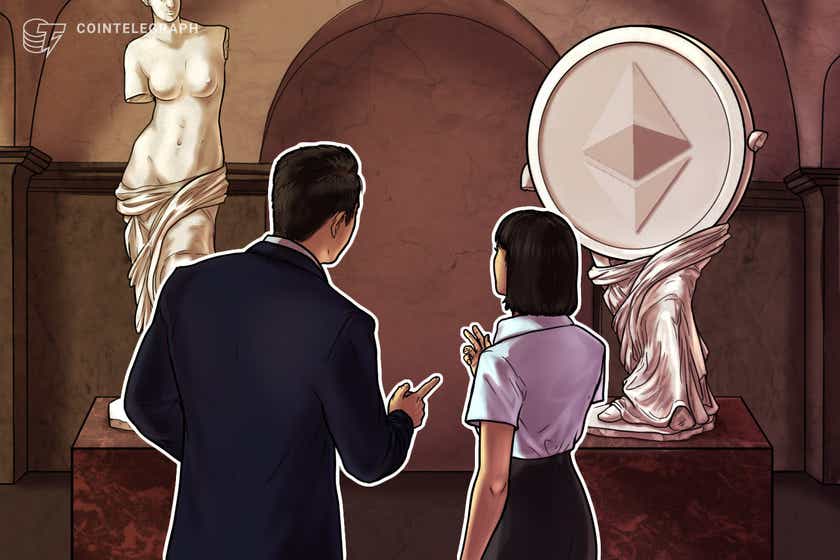‘Invisible Aether’: World’s largest museum launches NFT art exhibition

After raising $440,000 selling NFTs on Binance, the Hermitage is now curious if NFTs are about the art, or rather just the money.
The Russian State Hermitage Museum continues diving in the nonfungible tokens (NFTs) industry by debuting its first fully-virtual exhibition of digital art.
Shortly after raising over $400,000 via its first NFT auction on Binance in September, the Hermitage is now hosting a free exhibition of NFT artworks existing exclusively in the virtual space, the so-called “celestial hermitage,” or the museum’s digital avatar.
Launched on Nov. 10, the Hermitage’s exhibition is called the “Invisible Aether” and is based on the concept of metaverse, allowing users to create digital avatars and surf across the virtual site using PCs, smartphones, virtual reality glasses and other devices. The virtual site mimics the interiors of the local landmark Old Saint Petersburg Stock Exchange, but the actual exhibition has nothing to do with trading, according to a senior curator of the project.

“The exhibition’s artworks are not for sale. We avoid all topics related to the price of these pieces in order to focus on showing what digital art really is, because the cost of art is secondary to its value,” Hermitage’s director of contemporary art, Dimitri Ozerkov, told Cointelegraph.
Ozerkov noted that Hermitage will return all of the artworks to its original owners including artists and collectors right after the exhibition ends on Dec. 10. “Further events are outside the remit of the museum,” he added.
At a press conference on Thursday, Ozerkov emphasized that Hermitage has “no financial interest” in conducting the free exhibition, noting that the museum is striving to find out the real value of NFTs. “We want to see what’s left of the NFT if you take away the money aspect,” he said.
The selection of artists and works for the “Invisible Aether” exhibition was made by two curators including Ozerkov and Anastasia Garnova, a member of the Hermitage contemporary art division.
“We believe that selection by curators is crucial for a museum exhibition, as it makes it more integral in terms of topics and chapters. The selection principle is based on the artworks’ importance for understanding the essence of the NFT,” Garnova told Cointelegraph. “Artists were not able to apply for participation in the exhibition,” she added.
Related: Beyond the NFT hype: Creating lasting business models for artists
The full list of artworks is available on the official website of the exhibition, featuring a total of 37 pieces including Schrödinger’s Cat by CryptoKitties, a popular blockchain game built by Canadian studio Dapper Labs on the Ethereum network. The list also includes an artwork by Saint Petersburg-based artist known as Darkzuu.
The exhibition also stars NFT platforms and major industry players like Snark.art, Masters digital, The Art Exchange, Rarible, Superrare, KnownOrigin, ArtBlocks, Alterhen.art, and OpenSea.



